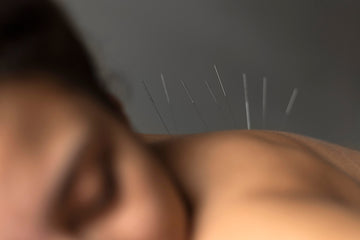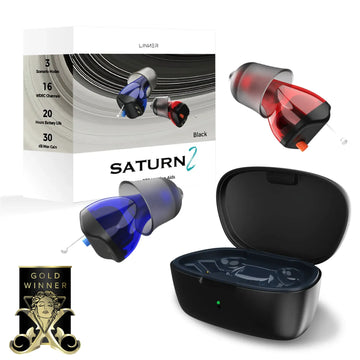For the millions suffering from constant ear ringing, acupuncture points for tinnitus represent a centuries-old approach that's increasingly subject to scientific scrutiny. I've encountered countless individuals desperately seeking relief from this persistent condition after conventional treatments failed to provide lasting results.
Tinnitus affects approximately 10 to 15 percent of adults globally, causing symptoms ranging from mild annoyance to severe disruption of daily life. Although Western medicine offers various management strategies, many patients turn to alternative treatments like acupuncture for tinnitus relief. These specific pressure points for tinnitus, located on the head, ears, neck, and hands, have been used in Traditional Chinese Medicine for generations. The best acupuncture points for tinnitus are believed to restore energy flow and reduce the perception of ringing sounds. Additionally, auricular acupuncture points for tinnitus target specific areas on the ear itself, corresponding to different body regions according to TCM principles.
In this article, I'll examine the most commonly used acupuncture pressure points for tinnitus, explore the theories behind their application, and most importantly, analyze what scientific research actually tells us about their effectiveness. The question remains: can these ancient techniques truly silence the ringing, or is the apparent relief simply a placebo effect?
What is tinnitus and why is it so hard to treat?
Understanding the symptoms and causes
Tinnitus is not simply an isolated condition, but rather a symptom characterized by the perception of sound without any external acoustic source. These phantom noises typically manifest as ringing, buzzing, roaring, clicking, or hissing sounds that only the affected individual can hear. This troublesome symptom affects approximately 15% of the general population, with around 2.4% experiencing significant distress that substantially impacts their quality of life.
Unlike what many believe, tinnitus stems from various underlying causes rather than being a disease itself. Primarily, it's associated with damage to the auditory system. When the delicate hair cells in your inner ear become bent or broken—whether through aging, regular exposure to loud noises, or other factors—they can "leak" random electrical impulses to your brain, creating these phantom sounds. Furthermore, ear infections, earwax blockage, certain medications, head injuries, and blood vessel disorders can all trigger tinnitus symptoms.
Why conventional treatments often fall short
Despite affecting millions worldwide, tinnitus remains notoriously difficult to treat for several key reasons. First, there is currently no cure that can reliably eliminate tinnitus or consistently reduce its perceived loudness. This reality frustrates both patients seeking relief and medical professionals attempting to provide it.
The heterogeneous nature of tinnitus presents another significant challenge. The condition varies dramatically between individuals in terms of causes, symptoms, severity, and response to treatment. Consequently, what helps one person might prove ineffective for another. Moreover, our understanding of tinnitus pathophysiology remains incomplete, which hinders progress in developing effective treatments.
Current management approaches primarily focus on reducing the impact of symptoms rather than eliminating them. Options include hearing aids (when hearing loss is present), sound therapy to mask the noise, and cognitive behavioral therapy to reduce distress. Nevertheless, many patients find these interventions insufficient, which explains why alternatives like acupuncture points for tinnitus gain interest among those seeking relief.
The absence of objective measures for assessment and the lack of established biomarkers further complicate treatment evaluation. Research challenges include limited power of animal models and inconsistent results across studies, meaning breakthroughs in tinnitus treatment remain elusive despite ongoing scientific efforts.
How acupuncture for tinnitus is believed to work
Acupuncture has served as a cornerstone of Traditional Chinese Medicine for thousands of years, offering relief for various conditions including persistent ear ringing. To understand how acupuncture points for tinnitus might work, we need to examine both ancient wisdom and modern scientific insights.
The role of qi and meridians in Traditional Chinese Medicine
Traditional Chinese Medicine views tinnitus through the lens of energy imbalances within the body. The diagnosis system is based on monitoring the Yin/Yang system and five-phase theory, dividing symptoms into mutual and contradictory groups. In this framework, tinnitus often results from disturbances in qi (vital energy) flow.
Ancient texts like Huangdi Neijing describe tinnitus as "caused by the rise of Yang Qi in all things". TCM practitioners believe the ear serves as a meeting point for multiple meridians (energy pathways). Therefore, inserting needles at specific acupuncture pressure points for tinnitus aims to restore proper energy circulation throughout these channels.
Modern theories: neurotransmitters and brain activity
From a scientific perspective, research reveals that stimulating acupuncture points leads to measurable neurological changes. Both animal and human studies show that acupuncture triggers the release of key neurotransmitters in the central nervous system, including serotonin, oxytocin, and endorphins.
Functional MRI studies provide visible evidence of acupuncture's effects, showing altered blood flow patterns in various brain regions following treatment[31]. Specifically, acupuncture appears to regulate levels of:
- GABA (gamma-aminobutyric acid)
- 5-hydroxytryptamine (5-HT)
- Brain-derived neurotrophic factor
These biochemical changes may help explain why some patients experience relief after treatment.
Differences between auricular and body acupuncture
The best acupuncture points for tinnitus may be found on either the body or the ear itself. Auricular acupuncture focuses exclusively on points located on the outer ear, based on the principle that the ear contains reflex areas connecting to all body systems. This non-invasive approach can be delivered through pressure (acupressure) or tiny semi-permanent needles.
Conversely, body acupuncture utilizes points along the body's major meridians, typically those related to kidney, liver, and gallbladder channels that TCM associates with ear function[31].
Best acupuncture points for tinnitus relief
In clinical practice, certain acupuncture points have shown particular promise for tinnitus relief based on both traditional wisdom and modern research. These specific points, primarily located around the ears and along connected meridians, are frequently used in combination to strengthen their therapeutic effects.
Ermen (TB21)
Located in the depression anterior to the supratragic notch and slightly superior to the condyloid process of the mandible, Ermen serves as an important local point for ear disorders. This point must be located and needled with the mouth open to reveal the correct depression. Ermen is especially effective when tinnitus stems from Liver Wind agitating internally due to Liver Yang Rising. The point is needled 0.5-1 cun vertically or slightly obliquely in an inferior direction.
Tinggong (SI19)
Situated in the depression between the tragus and the mandible condyle, Tinggong is considered one of the most important local points for tinnitus, especially when caused by certain deficient patterns like Lung and Heart Qi Deficiency. This point is needled with the mouth open, allowing the needle to be inserted perpendicularly 0.5-1.0 cun. Notably, Tinggong can also calm the Mind while invigorating Qi in the ears.
Tinghui (GB2)
Positioned inferiorly among the three points anterior to the tragus, Tinghui works effectively for tinnitus related to Wind-Heat obstructing the Channels. In fact, clinical studies have shown this point is frequently included in protocols that achieved significant improvements in tinnitus symptoms.
Fengchi (GB20)
Fengchi has shown remarkable results in research studies, particularly when used with electroacupuncture. Studies indicate it can modulate the trigeminovascular system pathway and inhibit CGRP expression in the trigeminal ganglion. This point appears in protocols that achieved an 80% effectiveness rate for tinnitus treatment.
Yifeng (SJ17)
Found posterior to the ear lobule in the depression between the mandible angle and mastoid process, Yifeng functions to dispel Wind, benefit the ears, clear Heat, and activate meridians. As a crossing point of the San Jiao and Gall Bladder Meridians, it's particularly valuable for addressing tinnitus and deafness.
Hegu (LI4)
While not directly near the ears, Hegu is widely considered one of the most powerful acupuncture points across various traditions. Located on the dorsum of the hand between the first and second metacarpal bones, it influences conditions affecting the head, face, and sensory organs. Hegu regulates the flow of Qi and Blood, particularly along the Yangming channel, making it valuable for addressing tinnitus associated with stagnation.
What science says: does acupuncture really help?
The scientific community remains divided on whether acupuncture points for tinnitus offer genuine relief or merely placebo effects. Since this ancient practice claims to help where conventional medicine often falls short, researchers have increasingly put these claims to the test.
Overview of clinical trials and placebo comparisons
Scientific studies examining acupuncture for tinnitus present conflicting conclusions. A randomized double-blind clinical trial showed that acupuncture significantly reduced both tinnitus loudness and severity compared to placebo treatments. After 15 sessions, the acupuncture group's tinnitus severity index dropped from 43.84 to 24.82, while their visual analog scale scores decreased from 9.56 to 2.88. Similarly, another study reported significant reductions in tinnitus severity after just 5 treatment sessions.
Contrarily, other research indicates limited efficacy. Six randomized controlled trials reviewed by one team found that only two unblinded studies showed positive results, whereas four blinded studies showed no significant advantage over placebo treatments.
Short-term vs long-term effects
Regarding duration of benefits, short-term improvements appear more consistent than long-term relief. In placebo-controlled studies, tinnitus severity initially decreased during treatment periods, yet these improvements often diminished over time.
One promising finding suggests that 20-minute or 60-minute needle retention times might yield better overall efficacy. Still, most studies fail to track patients beyond a few weeks post-treatment, leaving questions about lasting benefits unanswered.
Limitations and gaps in current research
Several methodological issues undermine current evidence. First, tinnitus lacks standardized objective assessment criteria, complicating treatment evaluation. Additionally, many studies suffer from small sample sizes, inadequate blinding, or poor reporting quality.
Systematic reviews reveal concerning limitations—of 14 published meta-analyzes, only one demonstrated moderate methodological quality; the rest showed very low quality. Even positive findings often constitute low or very low-quality evidence.
Since proper control procedures remain challenging (patients frequently recognize the difference between real acupuncture and sham treatments), future research must employ stricter protocols alongside clearer reporting standards.
Conclusion
Tinnitus remains a challenging condition that affects millions worldwide, with many conventional treatments providing limited relief. Throughout this exploration of acupuncture points for tinnitus, we've seen how this ancient practice offers an alternative approach based on principles of energy flow and meridian pathways. Although the Traditional Chinese Medicine explanation differs significantly from Western medical understanding, science has begun to uncover potential neurological mechanisms through which acupuncture might influence tinnitus symptoms.
The specific points discussed, such as Ermen, Tinggong, Fengchi, and Hegu, represent just a portion of the acupuncture arsenal aimed at tinnitus relief. Actually, these carefully selected locations correspond to traditional meridian pathways while also targeting areas with neurological connections to auditory processing.
Research findings present a mixed picture. Some clinical trials demonstrate meaningful reductions in tinnitus severity and loudness after acupuncture treatment. Nevertheless, other well-controlled studies show results barely distinguishable from placebo effects. This contradiction highlights the complexity of both tinnitus as a condition and acupuncture as an intervention.
Short-term benefits appear more reliable than long-term relief, though most studies fail to track patients beyond a few weeks post-treatment. Additionally, research quality varies considerably, with many studies hampered by methodological flaws like small sample sizes and inadequate controls.
For those struggling with persistent tinnitus after trying conventional approaches, acupuncture might be worth considering as a complementary option. However, patients should maintain realistic expectations. While some individuals experience significant improvement, others may notice minimal change. Undoubtedly, future research with stronger methodology will help clarify which specific patients might benefit most from acupuncture intervention.
The journey to silence the ringing continues, and acupuncture represents just one potential path among many. The most effective approach likely combines multiple strategies tailored to each individual's unique experience of tinnitus. Before pursuing any treatment, consulting with healthcare providers familiar with both conventional and alternative options remains the wisest first step toward finding relief from this persistent condition.





![Linner Mercury Clarity OTC Hearing Aids [FSA & HSA Eligible] Linner](http://www.linnerlife.com/cdn/shop/files/Linner-Mercury-Clarity-OTC-Hearing-Aids-_FSA-_-HSA-Eligible_-Linner-110038953.webp?v=1725853434&width=360)

